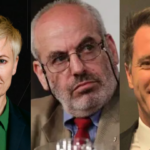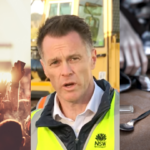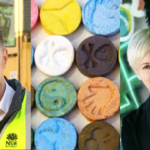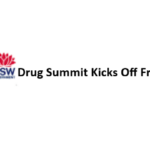Reforms Recommended by the NSW Drug Summit Are Long Overdue
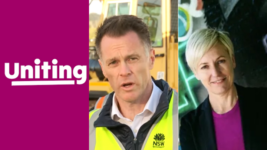
The 2024 New South Wales Drug Summit report was released on 3 April 2025. It recommends 56 priority actions are taken, including some prominent long-term drug law reforms, like enacting a drug driving defence for users of medicinal cannabis, the roll of pill testing, ending the use of sniffer dogs and strip searches at music festivals, and allowing for more medically supervised injecting centres.
But the 2024 NSW Drug Summit cochairs, former NSW Labor deputy premier Carmel Tebbutt and former NSW Liberal opposition leader John Brogden, who produced the report that was based on the input of stakeholders over the four days of the long-sought forum, failed to make any mention of the key drug law reform that NSW advocates had been calling for, which is drug decriminalisation.
This was through no fault of their own, however. NSW premier Chris Minns and health minister Ryan Park announced at the outset of the second Sydney half of the summit that drug decriminalisation was off the table, and in so doing, the NSW Labor government well understood that decriminalisation had been the priority, and that’s why the top ministers repeatedly ruled it out.
Labor ran in the 2023 NSW election on a platform that included holding ab drug summit, and this was expected to at least contemplate decriminalisation, or the removal of criminal sanctions against personal drug possession and use.
Yet, while the 1999 NSW Drug Summit the recent forum was based upon had a stellar reputation, in the wake of last year’s meeting, the impression has been underwhelming.
So, despite the barriers presented, the summit cochairs have agreeably delivered on the most prominent reforms besides decrim. Yet, with that exclusion, the summit fell short of recommending that people who use drugs are removed from the frontline of the drug war, and reformers are now asserting that the remaining proposals should pose no issue to a reluctant premier.
“Politically palatable” recommendations
“The report from the drug summit doesn’t go as far as what experts have told successive governments is needed to reduce drug harm and save lives,” said NSW Greens MLC Cate Faehrmann. “It’s clear that recommendations sought from a majority of stakeholders at the drug summit have been softened to make them politically palatable for a risk-averse premier.”
“The number one priority for the majority of attendees to reduce drug harm was to remove criminal penalties for drug use and possession,” the Greens spokesperson for drug law reform continued. “It’s extremely disappointing that this was not a recommendation.”
Faehrmann, however, praised the priority action that aims to review and reform the drug diversion policy known as the Early Drug Diversion Initiative (EDDI), which Minns launched in February 2024, after Liberal opposition leader Mark Speakman first proposed it as a noncontroversial alternative to the more robust policy of decriminalisation in 2020, when he was NSW attorney general.
The EDDI allows police officers to, at their own discretion, issue people caught with a personal amount of drugs in their possession with a $400 on-the-spot fine, which they can avoid paying via the attendance of a one-hour-long telehealth drug counselling session. This diversion can happen twice prior to a third time warranting arrest and charge.
Faehrmann has obtained EDDI statistics, which covered the period from February to August last year, and these showed that police officers only chose to divert 436 people, or 6 percent of individuals found in possession of a personal amount of drugs, which was compared with 6,332 times they chose to go straight for arrest. And only 21 diverted people chose to take the counselling session.
The Greens MLC further underscored that of all the recommendations, none of them “are surprising or radical and they can all be easily implemented in this term of government”. And she added that she looks “forward to working with the government and across party lines to see these recommendations implemented”.
The premier’s fiat
According to veteran NSW drug law reformist Dr Alex Wodak, the “open secret” is that “most of the NSW cabinet now support major drug law reform”. The Harm Reduction Australia ambassador put this forward in an article he penned straight after the holding of the two Sydney days of the NSW Drug Summit early last December.
So, based on this suggestion, a number of drug law reform-minded NSW ministers are frustrated in the wake of the summit, and this is especially so in regard to the refusal to have even considered decriminalisation, which was a move that appears to have been championed by premier Minns, with the health minister in tow.
On election of the Minns government, a number Labor members and interested civil society groups alike were expecting a drug summit with decriminalisation on the agenda.
However, as the ACT was about to roll out its policy of drug decriminalisation in October 2023, the Murdoch press quizzed the premier about NSW, and he said he had “no mandate” to progress decriminalisation and he too put the summit off until some distant time in the future.
This news sent the alcohol and other drug (AOD) sector and civil society supporting organisations into a tither, as this was a direct reversal of what interested parties had been expecting to happen on election of a NSW Labor government. The delaying and disjointed organising involved in the drug summit was too unexpected.
Given the extent to which the entire NSW Labor drug law reforming agenda was eroded, apparently at the whim of the NSW premier, Faehrmann is positing the least he could do is progress the “politically palatable” recommendations he’s now been provided with.
Tabled recommendations welcomed
“The Drug Summit report supports comprehensive drug checking and education, efforts to divert more people from criminal charges, ways to create more supervised injecting spaces, a whole-of-government AOD strategy and more access and funding for vitally needed treatment services, particularly in regional and rural NSW,” said Emma Maiden from the Uniting Church NSW.ACT.
“We have high expectations of the NSW government on this,” Uniting’s director of advocacy and external relations continued. “We need the government to act swiftly in its political and legislative response to this report, we cannot have a repeat of the slow response and inaction following the ice inquiry.”
The report recommendations cover twelve broad categories: the service system, funding models, prevention and early intervention, information and education, family and community support, youth-specific services, Aboriginal social and emotional wellbeing and cultural safety, workforce, stigma and discrimination, cannabis and driving, harm reduction and the criminal justice system.
Uniting Church NSW.ACT was the key campaigner for drug decriminalisation in this state. It was also prominent in seeing the date of the NSW Drug Summit fixed after the premier was shirking on setting it. Uniting launched Fair Treatment, which is a campaign calling for decriminalisation in NSW and the ACT, in 2018. And it has achieved its goal in terms of the nation’s capital.
Fair Treatment has over 70 partner organisations calling for the reform, including the NSW Bar Association, the Aboriginal Legal Service NSW/ACT, Community Legal Centres NSW, Human Rights Watch, The University of Sydney, NSW Council for Civil Liberties, Australian Lawyers for Human Rights, The Doctors Union, Australian Medical Students Association and Hepatitis Australia.
The 1999 NSW Drug Summit saw the Uniting Medically Supervised Injecting Centre Kings Cross opened, and everyone has welcomed the recommendation that more of these lifesaving facilities be established, with consultation, where needed across the state.
“The families and friends of those impacted by our unfair drug laws and communities across NSW have waited too long for change,” Maiden further insisted in a 3 April statement. “It’s safe to say that there’s a growing anticipation within the community services sector about the report and how the government responds.”
“We need the government to urgently respond to the report, with the appropriate funding attached for implementation and we need them to look carefully at the inherent unfairness of the Early Drug Detection Initiative in its current form,” the Uniting Church advocacy director made certain on ending.


